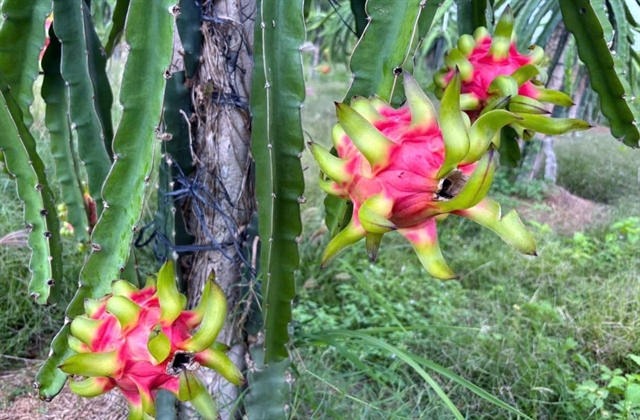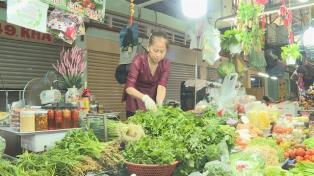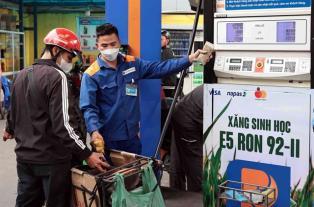Hundreds of tonnes of dragon fruit are stuck in warehouses, as farmers and businesses face the risk of huge potential financial losses if the issue is not resolved promptly.

HÀ NỘI — A series of agricultural export shipments to Europe are facing delays due to issues with food safety certification procedures.
The export of fruits and vegetables to the European Union (EU) has encountered significant obstacles since the beginning of this month, with shipments such as dragon fruit, chilli peppers and okra stuck due to a lack of EU-compliant food safety certificates.
This situation has led to goods being stored in warehouses for extended periods, causing additional storage costs and the risk of spoilage or contract cancellations due to delayed delivery.
Several businesses reported that, despite their documents being complete, they are still unsure which agency to submit them to for certification and how long they can expect to wait. Meanwhile, the EU is very strict about food safety standards.
The Tiền Phong (Vanguard) newspaper quoted Chairman of the Bình Thuận Dragon Fruit Association Huỳnh Cảnh as saying that businesses exporting dragon fruit to Europe have been unable to proceed with transactions since the beginning of the month due to the lack of a Government certification body in accordance with new EU requirements.
Hundreds of tonnes of dragon fruit are stuck in warehouses, as farmers and businesses face the risk of huge potential financial losses if the issue is not resolved promptly, he said.
Cảnh said that since July 1, the EU has required food safety certificates to be issued by Vietnamese Government authorities, rather than by businesses themselves or through third parties, as was done before.
This change coincided with the decentralisation of authority in Việt Nam under the new administrative model, he said.
Although the requirement was essentially just a change in the authority issuing the certificate, the need for relevant authorities to re-establish the entire process has made procedures more complicated and confusing, according to Cảnh.
Authorities need to act quickly, identify the cause of the bottleneck and provide urgent solutions to establish a Government-led certification process, he said.
Resolving this issue will help clear the agricultural products that are currently stuck, maintain the trust of farmers and preserve the reputation of Vietnamese agricultural products in the global market, he added.
The Plant Production and Protection Department under the Ministry of Agriculture and Environment (MAE) has sent a letter to businesses stating that under EU regulations, shipments of dragon fruit, chilli peppers and okra exported from Việt Nam to the EU must be inspected and certified by Vietnamese authorities in compliance with EU standards.
The certificate must include analysis results for shipments to ensure compliance with EU standards and a report following the EU's sampling procedures.
The department explained that the current bottleneck is related to the implementation of Circular 12/2025/TT-BNNMT, which took effect on July 1 this year.
This circular mandates the decentralisation of the authority to inspect food safety for exported plant products from the department to provincial People's Committees.
As a result, the department has requested that local authorities be responsible for inspecting and issuing certificates in accordance with the procedures specified in Article 24 of Circular 12 and Article 42, Section 1 of the Food Safety Law.
However, the rapid transition and decentralisation have left many localities struggling to keep up and implement the process in time, said the department.
While businesses urgently need these procedures to meet their shipment schedules, provincial authorities are still confused about their new responsibilities and lack clear guidelines, which has led to prolonged delays, the department noted.
The Plant Production and Protection Department confirmed that it has issued guidance documents and remains ready to collaborate with localities, offering support for State inspections and the completion of export procedures via online platforms.
In reality, with billions of US dollars in annual exports to the European market, Vietnamese agricultural producers cannot afford to let the administrative delay continue, said experts.
If the paperwork backlog is not resolved soon, Vietnamese agricultural businesses will miss out on one of the world’s most promising markets, they said. — VNS





